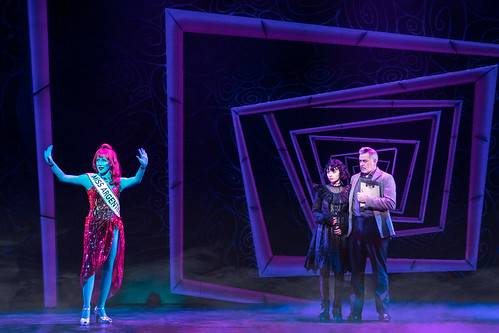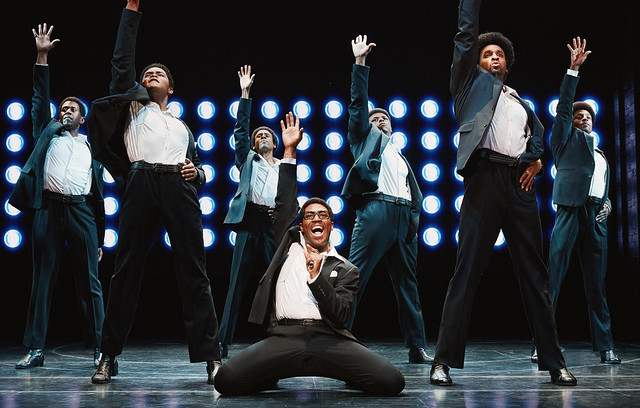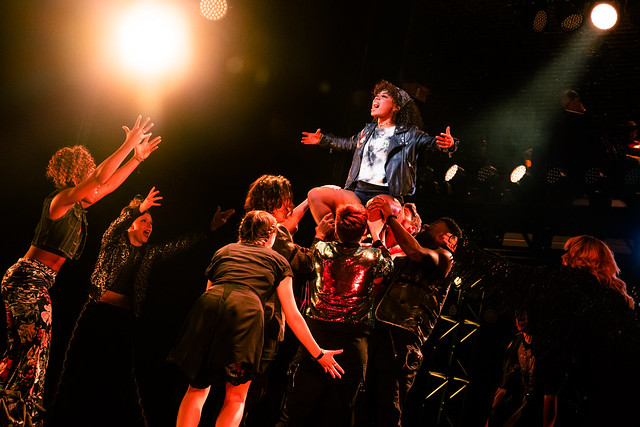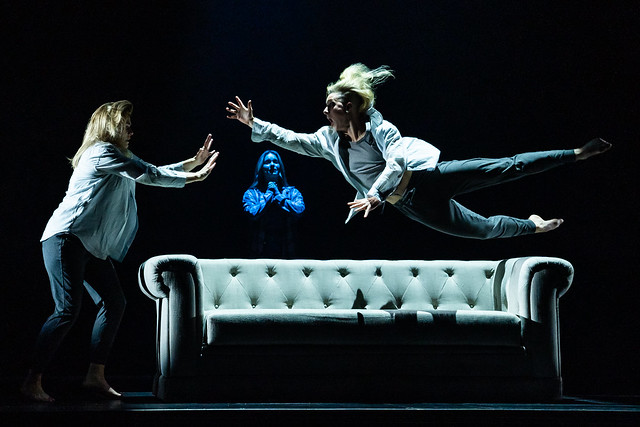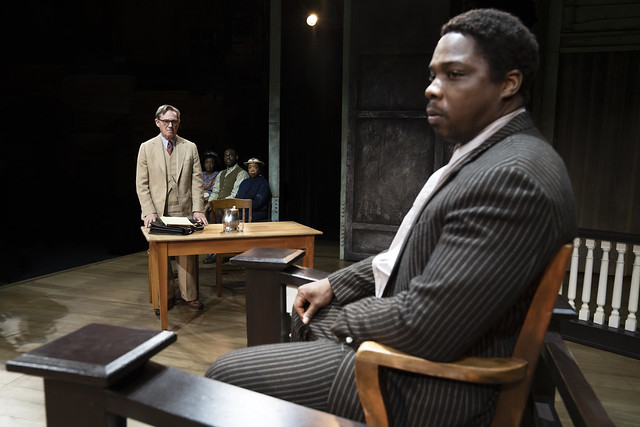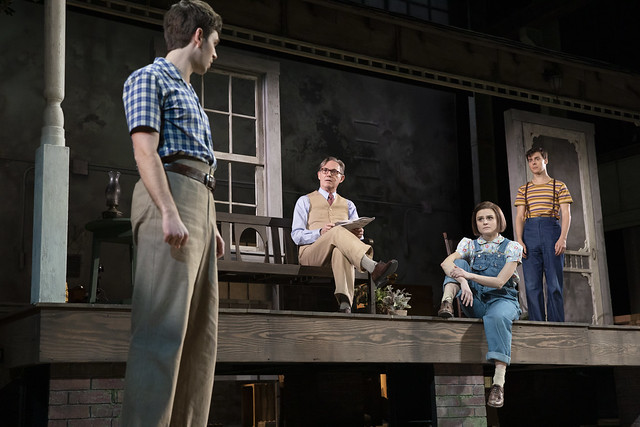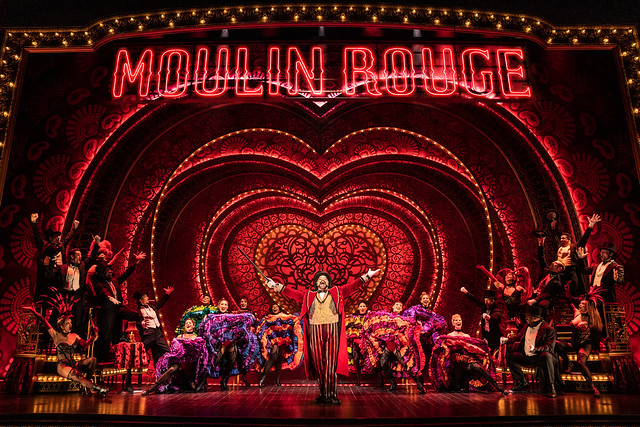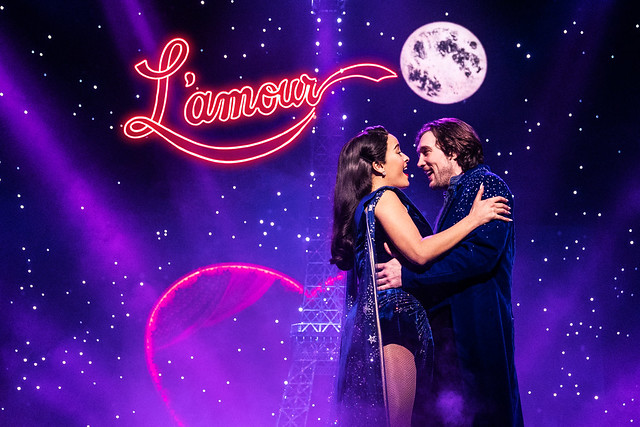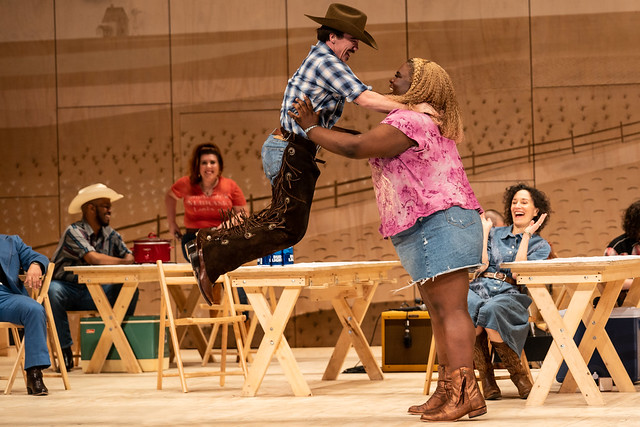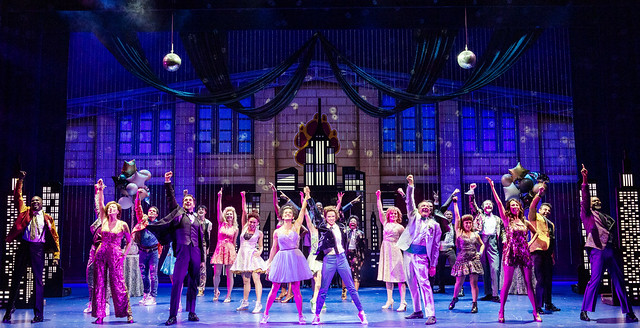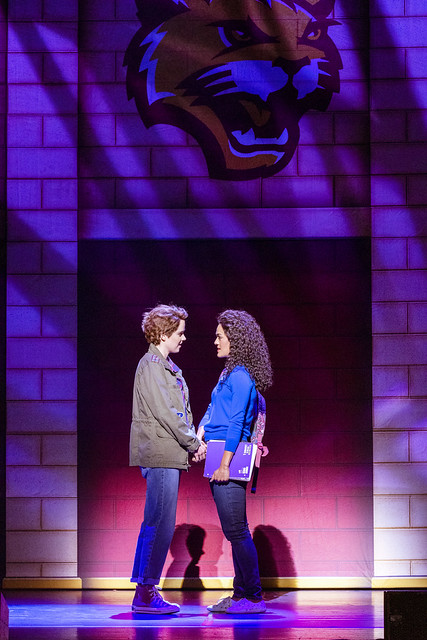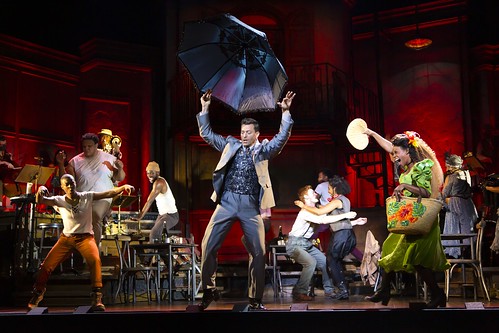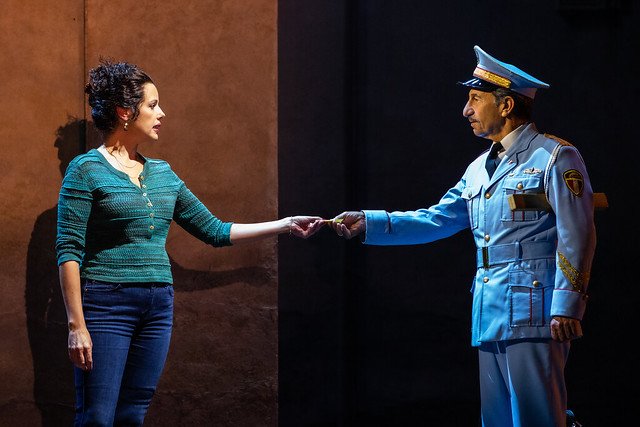
ABOVE: The cast of the Beetlejuice national tour includes (from left) Britney Coleman as Barbara, Will Burton as Adam, Isabella Esler as Lydia and Justin Collette as Beetlejuice. BELOW: (from left) Danielle Marie Gonzalez as Miss Argentina, Esler as Lydia and Jesse Sharp as Charles. Photos by Matthew Murphy
That the Beetlejuice musical is dead on arrival shouldn’t come as a surprise to anyone familiar with Tim Burton’s 1988 movie of the same name, which is, after all, about a dead guy trying really hard to rejoin the world of the living.
What the Beetlejuice musical, which premiered on Broadway in 2019 and is still running, joins is that ever-expanding group of semi-living movie-to-musical adaptations that don’t improve on the source material in any way, nor do they contribute anything of note to the larger world of musical theater.
My biggest complaint about this singing Beetlejuice isn’t the bawdy, crude, antic humor – in fact, that’s one of the show’s major assets and true source of entertainment. No, the problem is the score by Eddie Perfect, which is standard issue, vaguely rock, vaguely pop, vaguely Broadway. Why do so many new shows have such a nondescript sound?
Some of Perfect’s lyrics are sharp and funny, while whole ballads are filled with inanity. When Perfect mimics Broadway to get the big, razzle-dazzle vibe going, the show comes to life. The opener “The Whole ‘Being Dead’ Thing” is a hoot and makes it very clear (a la “Comedy Tonight”) to the audience exactly what is going on: “This is a show about death.”
Except that it’s not, really. It’s a show about dead people and living people who are stunted or lonely or grieving, and they’ll all have warm-and-fuzzy resolution by show’s end – a narrative that feels quite at odds with the irreverent tone that director Alex Timbers tries hard (but fails) to keep alive for 2 1/2 hours. There are some scattered musical theater jokes in the book by Scott Brown and Anthony King, but mostly the story seems scattered and unfocused, unsure whether the protagonist is Beetlejuice, grieving daughter Lydia or newly dead couple The Maitlands (why, oh why do they get a whole insipid number called “Barbara 2.0”?).
Justin Collette in the title role isn’t nearly as charming, menacing or funny as Michael Keaton was in the movie, but then again he’s saddled with songs about how it’s OK for him to take an underage bride. But Collette, in wocka-wocka vaudeville mode, sells the songs well, and his audience interactions are terrific. His big Act 2 number, “That Beautiful Sound” (about screaming and being terrified) is another one of those attempts to capitalize on some Broadway pizzazz, and it nearly infuses some life into this moribund enterprise.
The sets by David Korins bring to mind the Tim Burton sensibility with some theatrical fizz and flair, as do the puppets by Michael Curry and the costumes by William Ivey Long.
But the storytelling seems confined by Perfect’s score rather than liberated or enlivened by it. The songs don’t seem written to reveal character so much as to reveal just another song sung by just another person we don’t care much about. There’s a blandness to the words and music no matter how many applause-inducing buttons are appended. When the Belafonte numbers “Day-O (The Banana Boat Song)” and “Jump in the Line (Shake, Senora),” magically appear, the whole original score vanishes anyway, which leads one to wonder: how might Beetlejuice have fared as a play (with these Belafonte songs, which were also pivotal in the movie) rather than as a full-blown, please-everybody musical.
Sometimes it’s OK for the dead just to speak.
FOR MORE INFORMATION
Beetlejuice continues through Dec. 31 as part of the BroadwaySF season at the Golden Gate Theatre, 1 Taylor St., San Francisco. Tickets are $66.50 – $194.50 (subject to change). Running time: 2 hours and 30 minutes (including intermission). Call 888-746-1799 or visit broadwaysf.com.

